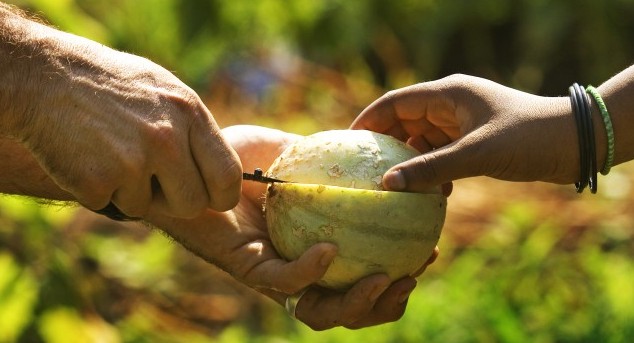My article on the teen gardeners of Anathoth Community Garden just appeared in World Ark magazine of Heifer International. You can read the full article here.
The teens who arrived each Saturday morning had been charged with various minor offenses: shoplifting, drug possession, carrying a knife to school. Our work with them was part of Anathoth’s mission, which came from the book of Jeremiah: “plant gardens and eat what they produce … and seek the peace of the place to which you are sent.” I had no trouble teaching teens how to plant gardens and eat what they produced, but I struggled with the peacemaking part. My patience was stretched by youngsters like Mohammed, who enjoyed shocking himself on our electric deer fence; or the three boys who snuck off to the woods to smoke an illegal substance; or Bassie, the young man who played in a punk band (“it’s basically a wall of sound coming at you with offensive song titles”) and who told his mother before coming to work with us, “I don’t care if they’re curing cancer out there—I’m not working at Anathoth!” Read More







![20101120_Heifer_Anathoth_852_[toned]](../../wp-content/uploads/2011/01/20101120_Heifer_Anathoth_852_toned-e1296014509446.jpg)
